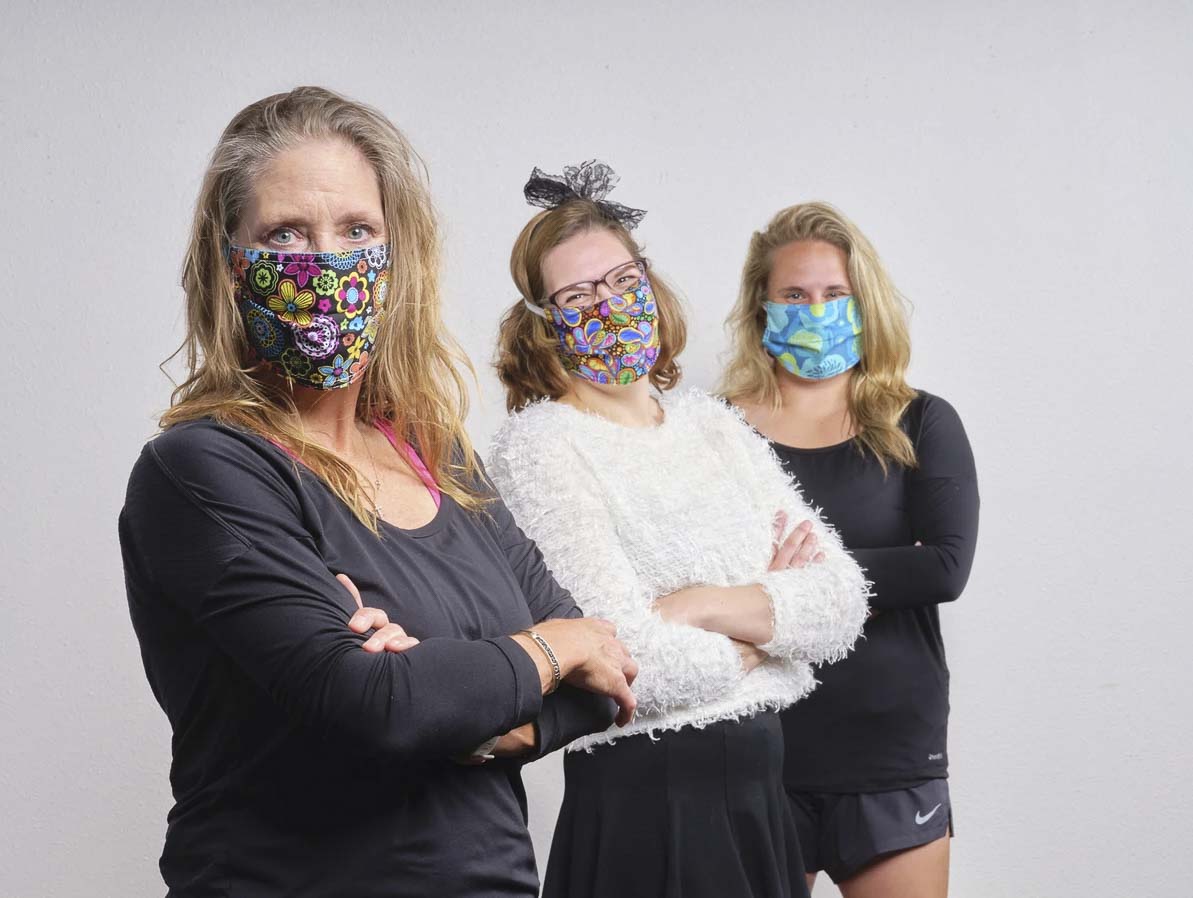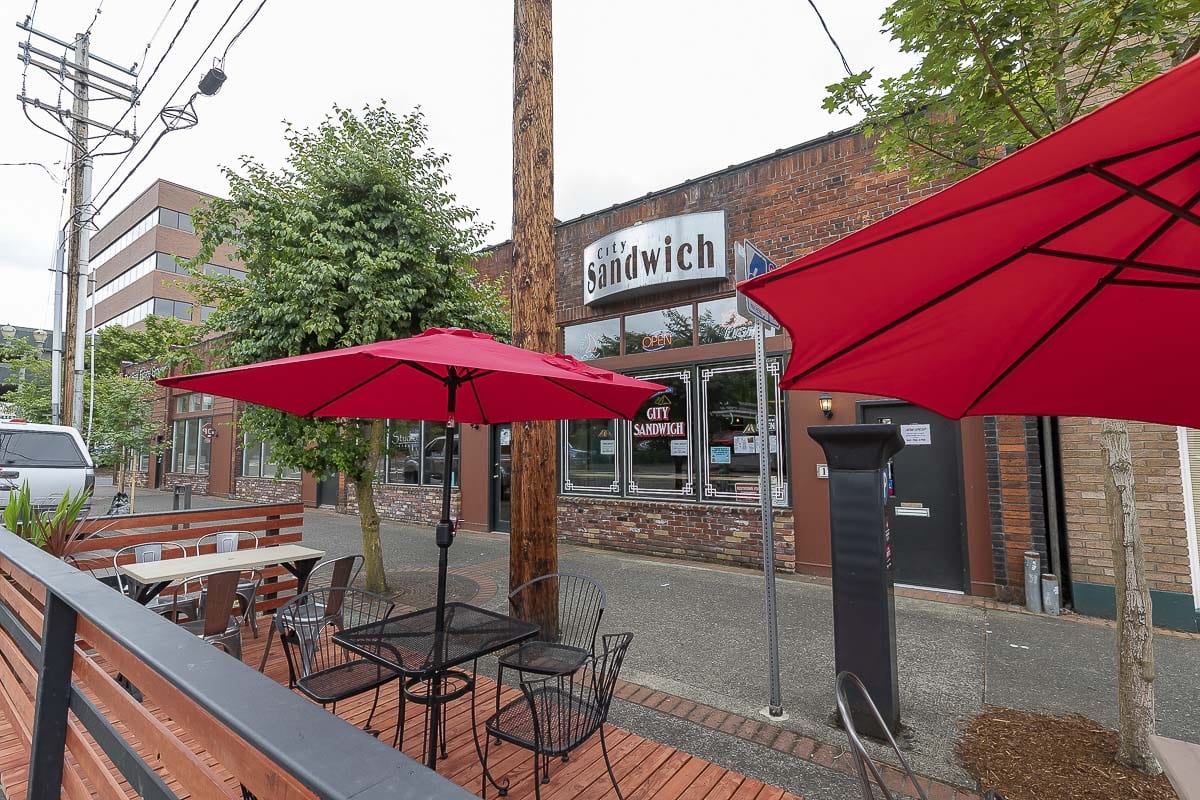Face coverings mandate now applies to retail and other in-person stores
VANCOUVER — On Fri., June 26, Gov. Jay Inslee’s executive order requiring all Washingtonians to wear face coverings went into effect. Today, July 7, that order now extends to require business owners to deny service to anyone not wearing a mask.
The order is being felt most in the arena of retail and in-store services like take-out restaurants. Business owners are being advised to provide masks to their customers, and also communicate with anyone not wearing a mask upon entry.
Confusion, however, is arising when it comes to medical exemptions from the mandate. Those with conditions which could be made worse by the inhibiting nature of a mask are not required to wear one, per the order, but businesses are not supposed to ask customers about health conditions, also per the order.
“It puts us in an awkward position as far as being a small business,” said owner of Main Street Floral Company in Battle Ground, Marilyn Moeser. “I don’t want to upset people yet we want to abide by the new mandate, otherwise we could get in trouble and essentially lose our license. We’re gonna have a sign on the door that just explains to people of the new mandate. We’re gonna try that and if we get a lot of pushback, then we’ll be locking up the retail floor again.”
Within the information provided by the governor’s office, those with health conditions are not required to provide any kind of proof of their ailment, and businesses are required to have accommodations for those who volunteer the fact that they have a condition exempting them.
At Sweet Spot Skirts in downtown Vancouver, owner Stephanie Lynn has implemented disinfecting practices with an ozonator each night and is asking all her customers to mask-up or purchase a mask from her store.

At the start of the pandemic, Lynn and her business formed a partnership with WellHaven Pet Health through the help of the Greater Vancouver Chamber of Commerce (GVCC). In order to stay afloat back then, and provide Wellhaven with much needed masks, Lynn began producing masks for them and now sells them in her store.
“We’ve tried to implement every single rule and people have been wonderful,” Lynn said. “Since we sell the masks, they could say, ‘Here I’ll just buy one.’ And they give us $14, put the mask on, and they can start shopping. If we say, ‘We prefer if you wear a mask,’ and they say, ‘No I won’t,’ I don’t know how we’re going to handle that. It has not happened, and I don’t really foresee it happening.”
Lynn explained that her target demographic, which is typically athletic women who are interested in decorative skirts and work-out clothes, are not as likely to have respiratory health conditions or be frustrated by the mandate. She did say that they will accommodate those that cannot or choose not to wear masks by social distancing and disinfecting the items they touch.
According to the Environmental Protection Agency and the Centers for Disease Control and Prevention, ozonators are not recommended for the purpose of disinfecting an area or items of COVID-19, and should not be used while the space they are in is occupied.
At Main Street Floral, Moeser is accommodating non-mask-wearing customers with a creative idea. The shop now has a large cart that can display many flower arrangements from the street and curbside customers can select directly from the cart. Employees at the shop will also help deliver any arrangements to the customer’s vehicle.
“Prior to today, we weren’t questioning anybody,” Moeser said. “I would say so far 90 percent of customers who have come into our shop, have worn masks. So I think it’s safe to say we probably won’t have that experience as much as some other businesses who have a bigger walk in rate than we do.”
Both Sweet Spot Skirts and Main Street Floral are members of the GVCC, and that organization is currently trying to get the most up-to-date and accurate information, recommendations and guidelines to the businesses it works with.
GVCC President and CEO John McDonagh compared the present situation with masks to a commonly known and implemented rule at businesses across the country.
“Most retail establishments and hospitality establishments have a standing policy of no shirt, no shoes, no service,” McDonagh said. “What is so very different about now saying, no mask, no service? The other two are both health-related issues. Unfortunately, I think it’s been co-opted by the political polarization in our country right now. People are trying to make it a right of some sort. I think how a business owner deals with the person who doesn’t have a mask will likely be consistent with how they deal with a person who comes in without a shirt on or without shoes on.”
The chamber has also implemented a program called Grow The 360, which seeks to connect area businesses in need because of the pandemic with patrons and other businesses.
In the realm of food, City Sandwich in downtown Vancouver is facing the pandemic with a parklet through the city’s Street Eats program and by working to implement the mask mandate, though they are far from happy about it.

“Well, we hate it, but we’re dealing with it. It’s a really touchy situation,” said Manager Robin Herz. “It makes it really hard. It makes it kind of difficult to have that personal experience. It’s hard to talk. It’s hard to hear them. Our business is definitely not where it was before this happened. So we’re kind of on a line where if somebody walks in and they’re not wearing a mask, are we supposed to ask them to leave because, I mean, we need the business.”
For more information on the specifics of the face coverings mandate and guidelines, visit the Washington Department of Health website with FAQs. For advice on dealing with frustrated and non-complying customers, the Washington Retail Association has created this page.




